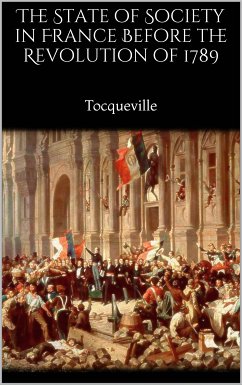The book I now publish is not a history of the French Revolution; that history has been written with too much success for me to attempt to write it again. This volume is a study on the Revolution. The French people made, in 1789, the greatest effort which was ever attempted by any nation to cut, so to speak, their destiny in halves, and to separate by an abyss that which they had heretofore been from that which they sought to become hereafter. For this purpose they took all sorts of precautions to carry nothing of their past with them into their new condition; they submitted to every species of constraint in order to fashion themselves otherwise than their fathers were; they neglected nothing which could efface their identity. I have always thought that they had succeeded in this singular attempt much less than was supposed abroad, and less than they had at first supposed themselves. I was convinced that they had unconsciously retained from the former state of society most of the sentiments, the habits, and even the opinions, by means of which they had effected the destruction of that state of things; and that, without intending it, they had used its remains to rebuild the edifice of modern society, insomuch that, fully to understand the Revolution and its work, we must forget for an instant that France which we see before us, and examine in her sepulchre that France which is no more. This is what I have endeavoured to do; but I have had more difficulty than I could have supposed in accomplishing this task.
Dieser Download kann aus rechtlichen Gründen nur mit Rechnungsadresse in A, B, BG, CY, CZ, D, DK, EW, E, FIN, F, GR, H, IRL, I, LT, L, LR, M, NL, PL, P, R, S, SLO, SK ausgeliefert werden.









